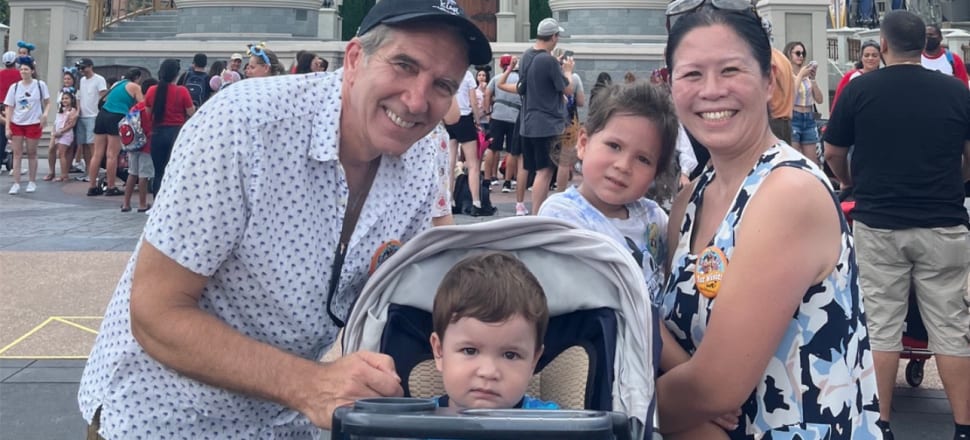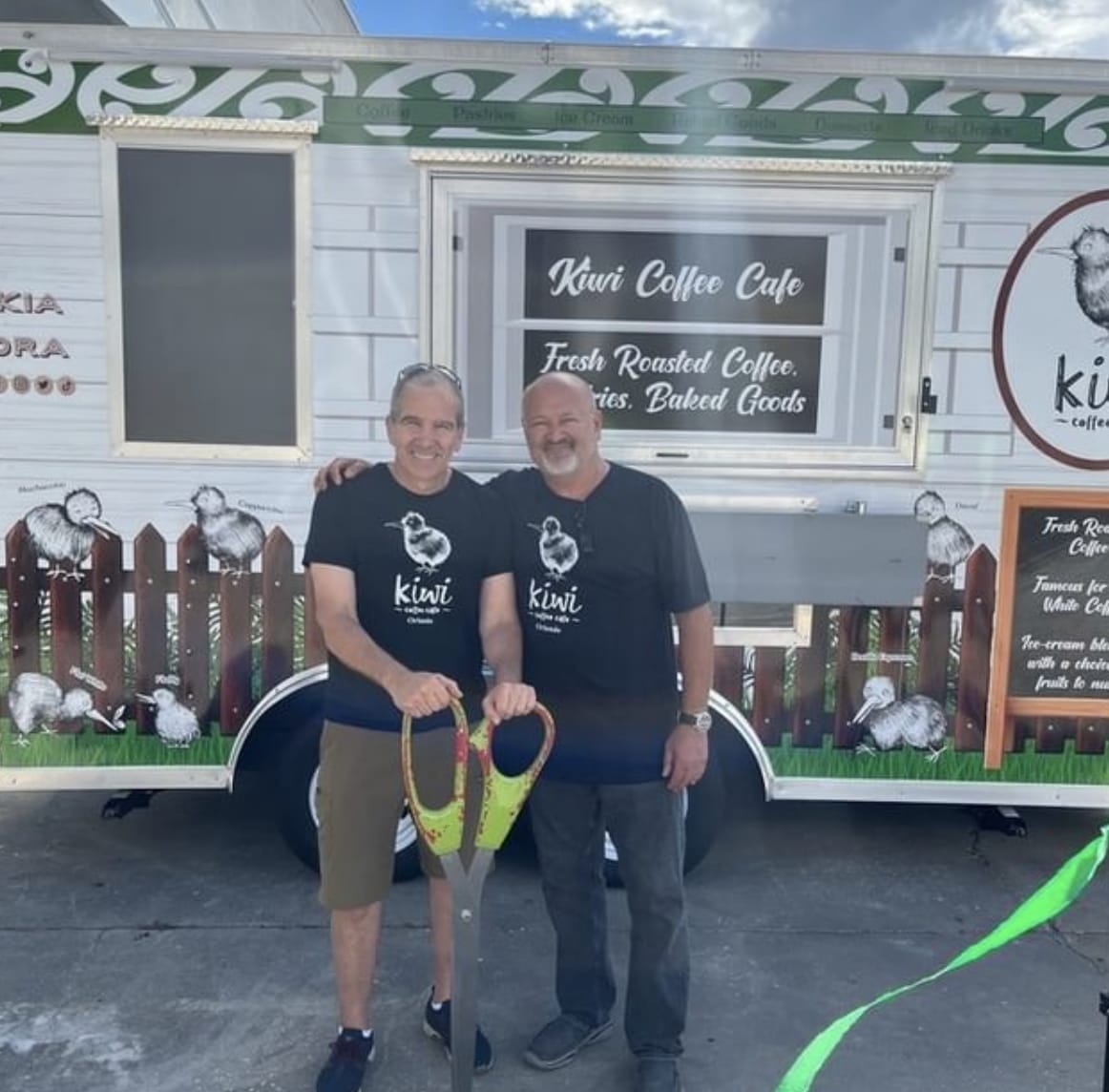
Despite his name appearing on the ballot sheet, John Palino hasn’t been seen on the Auckland mayoral campaign trail. Newsroom caught up with the candidate to find out what’s going on.
Foul weather is swooping down on Orlando, where Auckland mayoral candidate John Palino is speaking from. Hurricane Ian is battering southern Florida and slowly turning to make its way northwards up the peninsula.
Although Palino’s name has turned up on the ballot sheet for the fourth time as it’s been delivered to mailboxes across Auckland, this run at the job has been a bit different. There have been no Palino hoardings, no debate appearances and no media stand-ups.
Palino’s mind has been on something else in the past few weeks: a food truck specialising in Kiwi fare, selling flat whites and americanos to Americans.
But ahead of explaining what a long black is to Floridians, the 60-year-old political hopeful had to pull the Kiwi Coffee Cafe truck out of the wild and store it in the loading dock of his apartment building in anticipation of the wrath of Ian.
It’s not the first time the nascent business has been delayed, with lease hold-ups putting out the expected opening date by six months.
Palino says that’s why his campaign turned into a ghost campaign.
“We were really planning on coming back to New Zealand for this campaign, but I couldn’t leave - I had to get this thing open with my business partner,” he says.
Back in 2013, Palino secured more than 100,000 votes (around 30 percent), coming in second behind Len Brown. It was a campaign later mired in the controversy of Len Brown’s extra-marital affair with staffer Bevan Chuang being revealed, and Palino was cast as a central figure in the scandal after a late-night meeting with Chuang.
But while Palino’s name was on the front of every newspaper back then, this time around he’s been a candidate in name only, with no appearances at debates or hoardings at intersections.
Because although his candidate statement says his principal place of residence is in Auckland, he’s been back in the US with his wife and two young children since just before the pandemic. He says he and the family were caught when the border came down, and were unwilling to risk the flight or the stay in MIQ with two toddlers.

He says he decided to throw his hat in the ring back in early July, after seeing media coverage of the race and seeing what he called a lack of big ideas.
“I was shocked, I was like you’ve got to be kidding me, I’ve got to put my hand up,” he says. “I don’t see anybody with good ideas and it just shocks me.”
Palino says he wanted to get involved so he could introduce some new ideas to the mix and broaden the menu for Aucklanders, which might find their way into other candidates’ platforms even if he was unlikely to win the mayoral chains himself.
“The best thing that can happen is they see some of my policies and they’ll think they’re good ideas and they’ll use them.”
He gives the example of Greater Springfield, the master-planned private development outside of Brisbane that he repeatedly used as an example in his last campaign.
“I had a coffee with Phil after the election and we talked about satellite cities and he says you know I actually went to visit the city you talk about all the time… you talk about it so much I had to go and visit it,” he says. “And that’s the idea.”
But in mid-August he pulled the cord on the would-be campaign in order to hang around Florida and make sure he got the lease for his business.
It’s a move that could have saved him hundreds of thousands of dollars. In his first run at the mayoralty, Palino says he spent around $150,000.
By foregoing the usual costs of a campaign, he’s only out of pocket the $200 odd dollars it costs to sign up as a candidate - although actually getting any sort of significant chunk of votes is beyond his expectations.
“It’s impossible to get it if you’re not shaking hands and talking to people and stuff like that, it’s impossible,” he says. “You’ve got to be there.”
But what are those ideas he says need to be in the discourse around the Auckland mayoralty?
Palino talks about building satellite cities with developers given contracts including the provision of affordable housing and instituting an Auckland-specific GST tax to help pay for services and infrastructure.
They’re both ideas that have seen some play in Orlando’s Orange County, where a county-imposed sales tax of 0.5 percent is added onto the Florida’s state sales tax of 6 percent.
With the huge tourism draw of Disney World and Universal Studios in the area, this means incomers help to pay for the roads and other infrastructure they use.
Palino says Auckland could do with a similar scheme, not least because of the chokepoint nature of the isthmus meaning trucks have to pass through the city to deliver goods to parts north or south.
Another policy he pushes with an American flavour is the introduction of a detective’s department to local police, staffed by retired officers.
But with Palino still in Orlando and voting closing in just over a week, it seems Aucklanders might need to wait another three years for the former restaurant manager’s next try for Auckland’s top job to see any more details.







